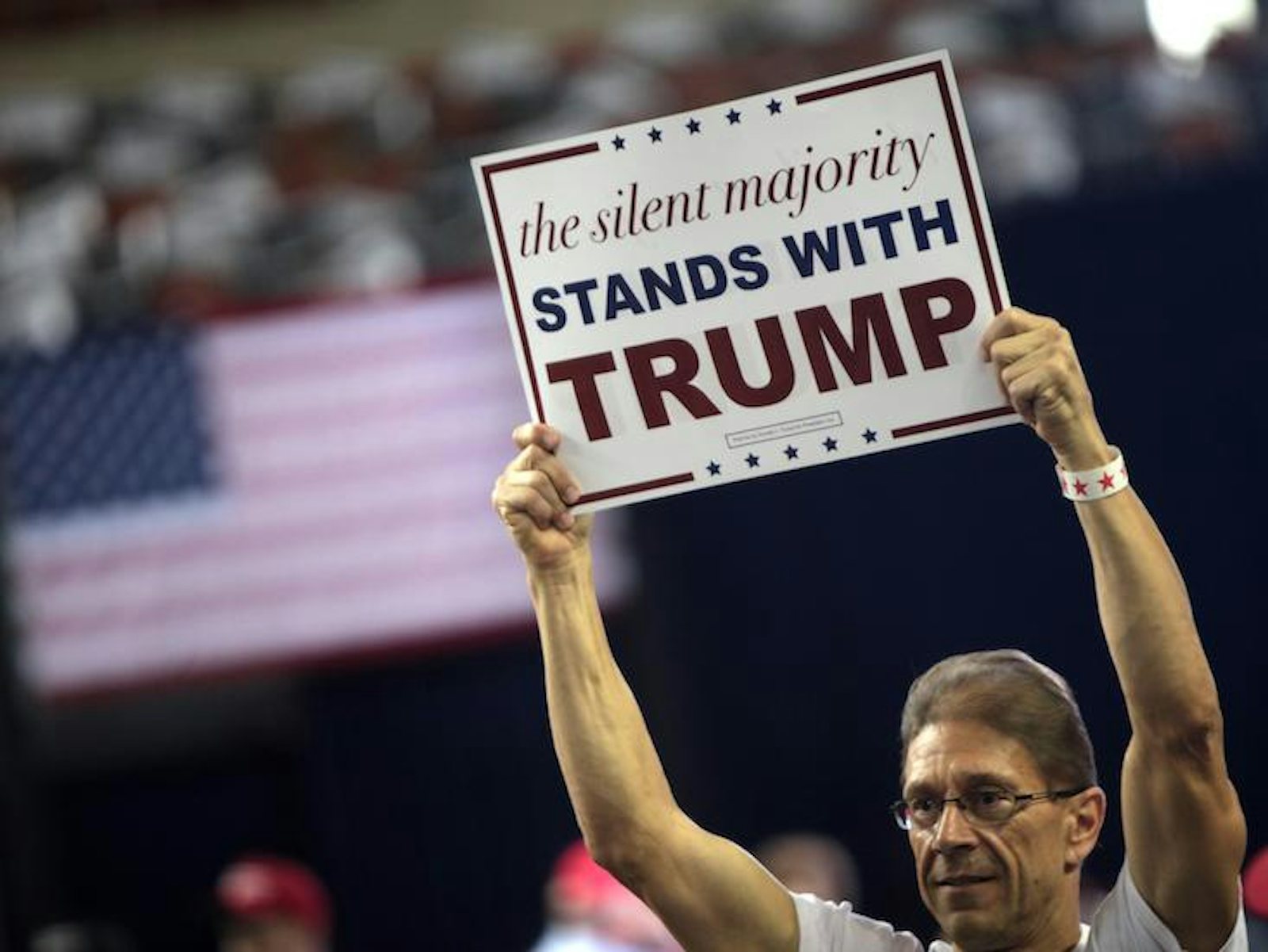Even as some describe his campaign as being in “melt-down mode,” political scientists and pundits are still searching for ways to explain the “Trump phenomenon.”1 They attribute his success in the Republican primaries to a host of factors, from the American public’s frustration with establishment politics to their belief that he can provide national and economic security.
But political scientists are not the only ones curious about Trump—physicists are, too.
Chief among them is Serge Galam, director of research at the National Center for Scientific Research, in France, and “the father of sociophysics,” which uses statistical physics techniques to analyze social phenomena. In the 1980s, he began developing a threshold model to explain how minority opinions can, in a democratic, majority-rule voting system, end up dominating the discourse. According to the model, people update their opinions by adhering to the majority opinion of local groups (made of two to six members). This is usually straightforward: If an opinion is held by more than 50 percent of a given group, its members will adopt it and spread it to other groups they end up joining.
But when the opinion in those local groups is split evenly, Galam found, something odd happens: Minority opinions become much more likely to dominate due to the presence of latent prejudices in the population. These run the gamut from sexism and racism, to more innocuous beliefs that are simply unexamined or inherited. Voters usually suppress their prejudices. But suppose an agent comes along that legitimizes some of them, causing some percentage of the electorate to begin trying to convince their friends and neighbors of them. Galam’s model shows that an opinion held by only 15 to 25 percent of the population can spread to eventually be held by the majority. So, in an evenly split electorate, these ideas—unleashed by an inflammatory candidate—may be enough to surmount the low 15-25 percent threshold necessary for them to dominate. (Just think of a phase diagram and its “tipping point.”) In order for the majority opinion to take control, it needs to start at above an 85 percent share of the population.
This, Galam says, helps to explain the Trump phenomenon. On his first attempt to predict the outcome of the Republican primaries, Galam still had Trump losing. “And then I realized,” he says, “that Trump, by shocking people, by making outrageous statements, was awakening prejudices inside some of the voters that had been frozen,” provoking discussions and driving the tipping point in Trump’s favor. His success wasn’t in spite of the shocking statements he made; he succeeded because of them. Trump’s opponents’ less incendiary remarks, meanwhile, failed to activate prejudice to the same degree.
Research shows that these biases are very much at play. Jeffrey Sherman, a social psychologist at the University of California, Davis, for example, is among a group of researchers making use of implicit gender-bias data collected from thousands of individuals who have taken online association tests. The team examined the extent of gender bias county by county across the United States and correlated those findings with voting preference in the primaries, controlling for variables such as age, education level, income, proportion of respondents of different genders and race, and political orientation. They found the correlation between implicit gender bias and voting choice to be 26 percent when comparing Clinton and Trump, and 33 percent when comparing Clinton and Sanders. (Sherman attributes the higher correlation in the latter case to the fact that, unlike Sanders and Clinton, Trump and Clinton were not in direct competition during the primaries.) “We’d call those medium-sized effects,” Sherman says. “Gender stereotyping predicts voting preference at a county level. If you live in a county where there’s a lot of implicit gender stereotyping, you’re more likely to prefer the male candidate over the female.”
So, for example, in the primary, “when Trump made shocking statements about women, he infuriated people, which led them to argue and discuss his statements with others,” Galam says. “By talking with people who do share the prejudice, the voters with the ‘frozen’ [sexist] bias could go along with the prejudice without acknowledging it.”
From what Galam saw of the debates, he doesn’t believe Trump has much of a chance of winning, despite the gender biases—and other prejudices—at play. He believes Trump needs to appeal to different prejudices more widely shared by both Democrats and Republicans. But he does believe that Trump has granted these biases more power over public opinion. “What makes the Trump effect so fascinating,” he says, “is this ascension of frozen prejudice.”
The same line of thinking can explain other surprising election results, Galam says. Back in 2002, and again in 2004, he predicted Brexit’s plausibility: The dynamics of open discussion and debate prior to the referendum, he warned, could very well lead to victory for those who wished to leave. Many people, it turned out, harbored prejudices or biases that would support leaving, even though, well before the vote, that wasn’t their settled opinion.
Footnote
1. See: “Donald Trump Is In Meltdown Mode” in the Washington Monthly.
Jordana Cepelewicz is an editorial fellow at Nautilus.
Watch: “If you wander in the direction of greatest confusion, you end up in the study of human society.”

The lead image is courtesy of Gage Skidmore via Flickr.






























